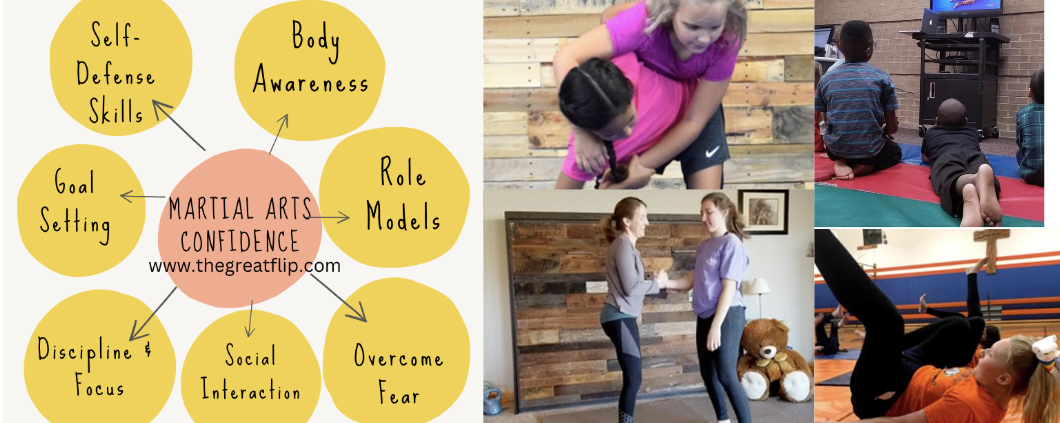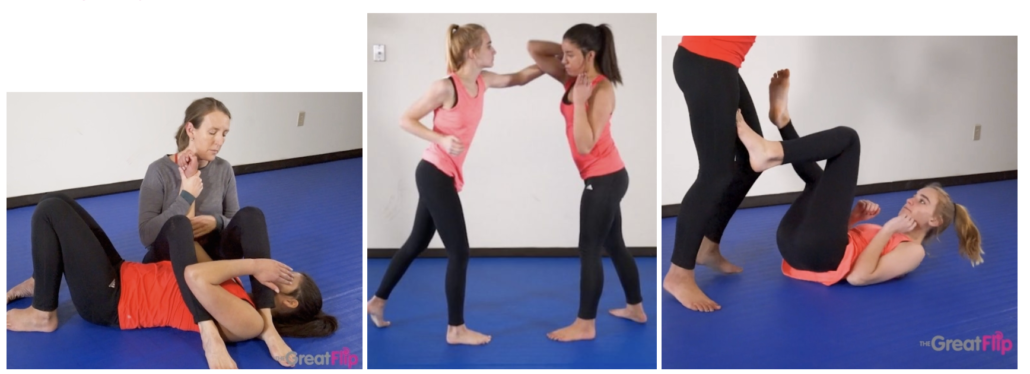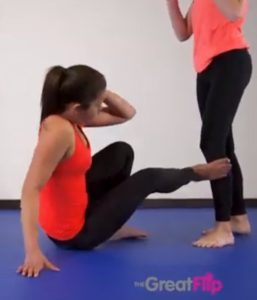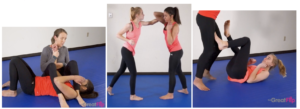Martial Art Skills Improve Your Child’s Confidence at The Great Flip
Do your children need a little confidence boost? Teach them self-defense skills! I taught my girls self-defense skills using a martial art called Brazilian jiu-jitsu. My confidence was boosted too!
Teaching martial arts skills has a positive impact on your children’s confidence (and yours!). Here are seven benefits you can give your children. You can teach martial arts skills using The Great Flip online martial arts resources to begin your journey.
This newfound sense of security can alleviate anxiety and make children feel more comfortable and confident in their daily lives.
#1. Self-defense skills.
Martial arts training equips children with the knowledge and ability to defend themselves. Knowing they can protect themselves in potentially threatening situations boosts their confidence. This newfound sense of security can alleviate anxiety and make children feel more comfortable and confident in their daily lives.
#2. Physical fitness and body awareness. 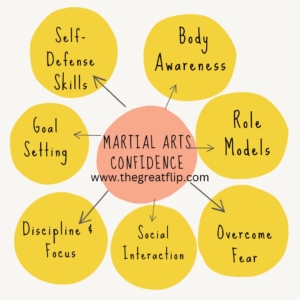
Martial arts involve physical training, which improves overall fitness, strength, and coordination. As children become stronger and more flexible, they gain a greater sense of control over their bodies. This enhanced body awareness contributes to improved self-image and confidence.
#3. Setting and achieving goals.
Martial arts training often follows a structured curriculum. By setting specific goals and working towards them, children experience a sense of accomplishment as they progress. Each achievement boosts their confidence and motivates them to set new goals, fostering a growth mindset.
#4. Discipline and focus.
Martial arts emphasize discipline, self-control, and concentration. Through consistent practice and adherence to rules and protocols, children develop discipline and learn to focus their attention. These qualities are transferable to other areas of life, helping children excel academically, socially, and emotionally. The ability to concentrate and stay focused also enhances their confidence in various situations.
#5. Overcoming challenges and fear.
Martial arts training presents various challenges, both physical and mental. Children learn to push past their limits, face their fears, and persevere through difficulties. As they overcome these challenges, their confidence grows. They realize that they can tackle obstacles and achieve success with determination and effort, instilling a sense of resilience and self-assurance.
#6. Positive social interactions. 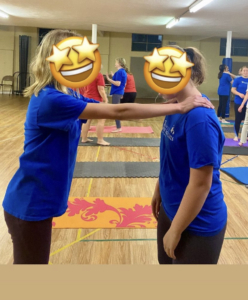
Martial arts classes provide opportunities for children to interact with peers and instructors in a structured and supportive environment. They learn to communicate effectively, cooperate, and develop teamwork skills. These positive social interactions build their self-esteem, as they feel accepted and valued within the martial arts community.
#7. Positive role models and mentorship.
Martial arts instructors often serve as role models and mentors for children. They provide guidance, support, and encouragement, helping children develop a positive self-image and belief in their abilities. The presence of a trusted adult who believes in their potential can significantly boost children’s confidence.
It’s important to note that the impact of martial arts on confidence can vary for each child, depending on factors such as their personality, individual progress, and the quality of instruction. Nonetheless, martial arts training generally promotes self-assurance, resilience, and a positive mindset, leading to improved confidence in children.
You can teach martial arts.
Join me at The Great Flip and give your children confidence. Click here to begin your journey.
Teach the Top 12 Self-Defense Skills, Click here.
Earn a certificate of completion.
Request a free video and lesson plan. Click here.
The Great Flip is an American Heritage Girls national program alliance.
Coach Jody writes devotions for True Girl, a ministry of Dannah Gresh at Pure Freedom.

